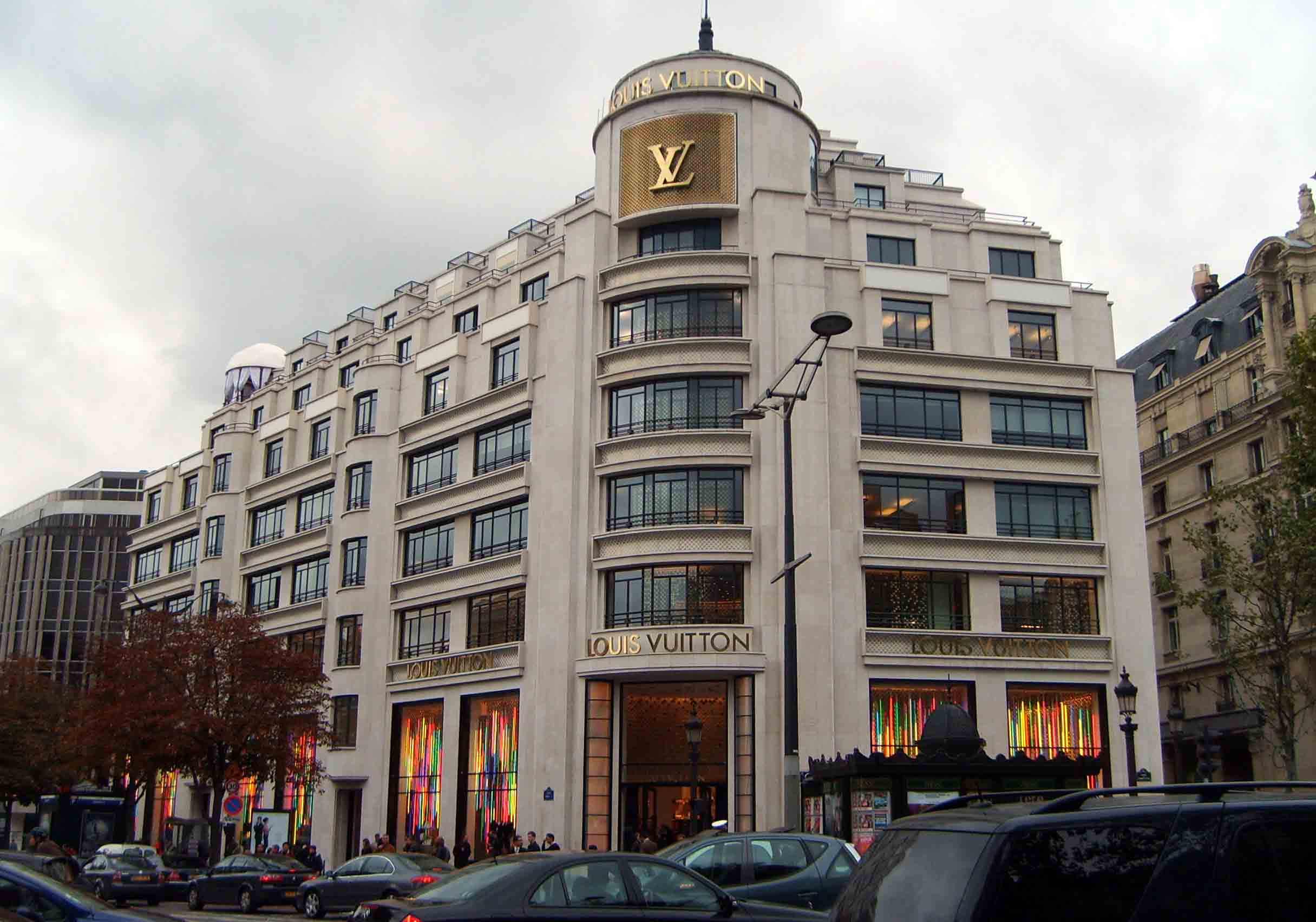[vc_row njt-role=”people-in-the-roles” njt-role-user-roles=”administrator,armember”][vc_column][vc_column_text]
Frank Boehly was re-elected in December 2017 for three years at the head of the Conseil National du Cuir (CNC, French Leather Council), which brings together 20 federations in the French leather industry, from production to distribution, through processing and manufacturing. In addition to his duties at the CNC, Frank Boelhy is also a director of the Conseil du Commerce de France (CdCF), vice-president of CTC, a member of the Bureau d’Au-delà du Cuir (AdC), and vice-president of the Alliance du Commerce (Union du Grand Commerce de Centre-Ville, Fédération des Enseignes de l’Habillement and Fédération des Enseignes de Chaussure). In the midst of the health and economic crisis, this defender of the sector explains the challenges for leather companies as they try to gradually recover.
Since March 16th, many leather companies have been at a standstill due to health measures related to the coronavirus. How has the CNC’s support for the 9,400 companies in the sector been expressed during these times of major crisis?
Before the end of the containment measures, about 90% of the sector was at a standstill, with the remaining 10% corresponding to the activity of traders who never stopped collecting hides from the slaughterhouses that supply the French with foodstuffs. An essential activity to relieve their congestion.
The aim of the Filière Française du Cuir was to enable all these companies to restart their activities as quickly as possible while ensuring that they comply with the strictest health rules to protect their employees.
This is why CNC decided to supply all the companies, particularly the production and distribution sector, with 500,000 reusable masks – the equivalent of 5 to 10 million masks – and 10,000 litres of hydroalcoholic gel, for a total budget of one and a half million euros.
A modest aid when we know the actual needs of the companies, but which has enabled an initial release, especially from the social partners who demand optimum security for employees in the event of reopening.
According to the owner of a supplier to the Kering luxury group: ” (Before the pandemic), 880 to 1,000 bags a month were produced for Gucci. In February, we produced 450 and we (had) no orders for March”. Are you able today to estimate the consequences of the epidemic on demand?
The leather market has indeed suffered a very brutal halt, first of all with the closure of shops and points of sale, which meant the pure and simple end of distribution and therefore of consumption.
Demand, in free fall, has also suffered from travel restrictions and the collapse of tourist flows, especially when we know that Asia represents 46% of French leather goods exports and that the Chinese are the main customers for luxury goods.
In addition, many of the companies have decided to suspend all their production activities as a precautionary measure, posing a further threat to supply and demand.
This is the case, for example, of certain large luxury groups, which are the “locomotives” of our industry, the clients of a multitude of subcontractors and manufacturers. It is therefore the global leather ecosystem that is potentially threatened.
In this deleterious context, we can only welcome the initiatives of a few major groups such as Hermès, which, in an act of solidarity and goodwill, has decided to maintain all its orders and not to break any of its supply chains, in order to protect its subcontractors.
The epidemic is following the Yellow Vest movement and the transportation strikes. Federations and trade unions have said they are working together on continuity plans to avoid business failures. What measures have been activated so as to revive the sector in the coming days?
It is true that even before the closure of the stores and the interruption of a large part of the industrial activity, the distribution sector of the French Leather Industry was already under pressure.
Today, with the exception of large groups, the majority of companies in our sector are in great difficulty. This is the case for the industrial sector but even more so for the distribution sector, whether for branch stores or independents.
As President of the Fédération des Enseignes de la Chaussure and a former retailer, I am fully aware of their troubles.
Even if the government is proactive and attentive to businesses, it must take even stronger measures, namely the total cancellation of the tax burden and not the implementation of simple “deferrals”. It must also allow insurance companies to cover operating losses, as well as the suspension of rents during periods of closure, the postponement of sales, and support for local trade by revitalising city centres and boosting consumption.
Tomorrow’s leather industry will also require relocation, so we are counting on a reduction in costs to encourage the relocation of production activities on French territory and a relaxing of the rules for financing professional training in order to increase domestic skills and repatriate delocalised know-how.
France is the world’s fourth largest exporter of leather. What support from the government do you think you can count on to ensure the future of a sector that is driving the growth of the French luxury giants?
What is certain is that we cannot expect specific measures for our industry, as luxury is not considered to be the sector most affected by the crisis at the present time.
On the other hand, our companies will benefit from the general support measures announced by the government, and in particular the measures for VSEs and SMEs. It is, in fact, an excellent thing that these measures do not exclusively concern leading industries such as aerospace, aeronautics or automobiles.
The furlough measures will help our small and medium-sized enterprises to avoid redundancies during periods of inactivity and thus to save exceptional French know-how, which is remarkable when we know that the fashion and luxury sector currently has a turnover of EUR 150 billion, an added value greater than that of the automotive industry.
One of your primary concerns has been to encourage the implementation of protective measures for employees. Improving working conditions is also one of the pillars of the industry’s future growth. How much weight does human capital carry in companies’ decisions today?
As mentioned above, our industry is based on the excellence of a wide range of know-how and is therefore supported by the skills of our companies’ employees. Human capital therefore plays an absolutely essential role in our industrial sector as a whole.
And it is because human capital is so important that companies today are so committed to ensuring the protection of their employees.
Read also > The French leather industry wants to spend 1,4 million euros to finance sanitary items
[/vc_column_text][/vc_column][/vc_row][vc_row njt-role=”not-logged-in”][vc_column][vc_column_text]
Frank Boehly was re-elected in December 2017 for three years at the head of the Conseil National du Cuir (CNC, French Leather Council), which brings together 20 federations in the French leather industry, from production to distribution, through processing and manufacturing. In addition to his duties at the CNC, Frank Boelhy is also a director of the Conseil du Commerce de France (CdCF), vice-president of CTC, a member of the Bureau d’Au-delà du Cuir (AdC), and vice-president of the Alliance du Commerce (Union du Grand Commerce de Centre-Ville, Fédération des Enseignes de l’Habillement and Fédération des Enseignes de Chaussure). In the midst of the health and economic crisis, this defender of the sector explains the challenges for leather companies as they try to gradually recover.
Since March 16th, many leather companies have been at a standstill due to health measures related to the coronavirus. How has the CNC’s support for the 9,400 companies in the sector been expressed during these times of major crisis?
Before the end of the containment measures, about 90% of the sector was at a standstill, with the remaining 10% corresponding to the activity of traders who never stopped collecting hides from the slaughterhouses that supply the French with foodstuffs. An essential activity to relieve their congestion.
The aim of the Filière Française du Cuir was to enable all these companies to restart their activities as quickly as possible while ensuring that they comply with the strictest health rules to protect their employees.[/vc_column_text][vc_cta h2=”This article is for subscribers only.” h2_font_container=”font_size:16″ h2_use_theme_fonts=”yes” h4=”Subscribe now!” h4_font_container=”font_size:32|line_height:bas” h4_use_theme_fonts=”yes” txt_align=”center” color=”black” add_button=”right” btn_title=”I SUBSCRIBE!” btn_color=”danger” btn_size=”lg” btn_align=”center” use_custom_fonts_h2=”true” use_custom_fonts_h4=”true” btn_button_block=”true” btn_custom_onclick=”true” btn_link=”url:https%3A%2F%2Ftest2023.luxus-plus.com%2Fen%2Fabonnements-et-newsletter-2%2F|||”]Unlimited access to all the articles and live a new reading experience, preview contents, exclusive newsletters…
Already have an account? Log in.
[/vc_cta][vc_column_text]Featured photo : Frank Boehly © Patrick Alves[/vc_column_text][/vc_column][/vc_row][vc_row njt-role=”people-in-the-roles” njt-role-user-roles=”customer”][vc_column][vc_column_text]
Frank Boehly was re-elected in December 2017 for three years at the head of the Conseil National du Cuir (CNC, French Leather Council), which brings together 20 federations in the French leather industry, from production to distribution, through processing and manufacturing. In addition to his duties at the CNC, Frank Boelhy is also a director of the Conseil du Commerce de France (CdCF), vice-president of CTC, a member of the Bureau d’Au-delà du Cuir (AdC), and vice-president of the Alliance du Commerce (Union du Grand Commerce de Centre-Ville, Fédération des Enseignes de l’Habillement and Fédération des Enseignes de Chaussure). In the midst of the health and economic crisis, this defender of the sector explains the challenges for leather companies as they try to gradually recover.
Since March 16th, many leather companies have been at a standstill due to health measures related to the coronavirus. How has the CNC’s support for the 9,400 companies in the sector been expressed during these times of major crisis?
Before the end of the containment measures, about 90% of the sector was at a standstill, with the remaining 10% corresponding to the activity of traders who never stopped collecting hides from the slaughterhouses that supply the French with foodstuffs. An essential activity to relieve their congestion.
The aim of the Filière Française du Cuir was to enable all these companies to restart their activities as quickly as possible while ensuring that they comply with the strictest health rules to protect their employees.[/vc_column_text][vc_cta h2=”This article is for subscribers only.” h2_font_container=”font_size:16″ h2_use_theme_fonts=”yes” h4=”Subscribe now!” h4_font_container=”font_size:32|line_height:bas” h4_use_theme_fonts=”yes” txt_align=”center” color=”black” add_button=”right” btn_title=”I SUBSCRIBE!” btn_color=”danger” btn_size=”lg” btn_align=”center” use_custom_fonts_h2=”true” use_custom_fonts_h4=”true” btn_button_block=”true” btn_custom_onclick=”true” btn_link=”url:https%3A%2F%2Ftest2023.luxus-plus.com%2Fen%2Fabonnements-et-newsletter-2%2F|||”]Unlimited access to all the articles and live a new reading experience, preview contents, exclusive newsletters…
Already have an account? Log in.
[/vc_cta][vc_column_text]Featured photo : Frank Boehly © Patrick Alves[/vc_column_text][/vc_column][/vc_row]










